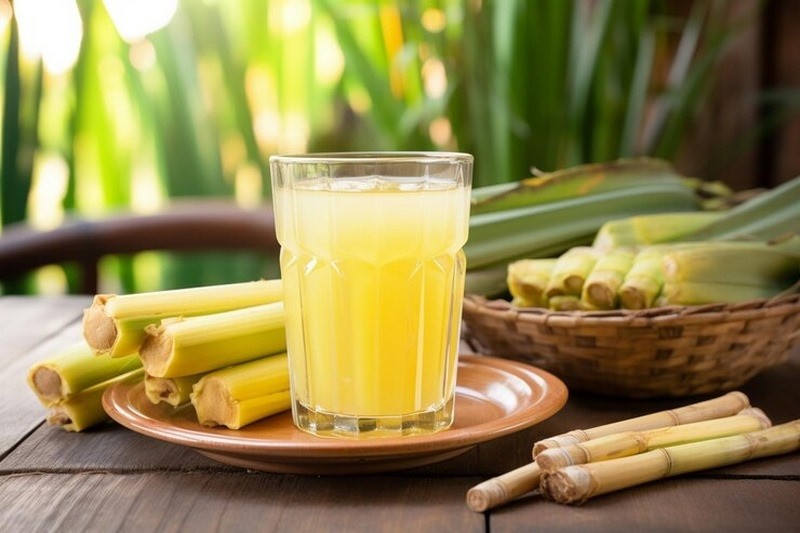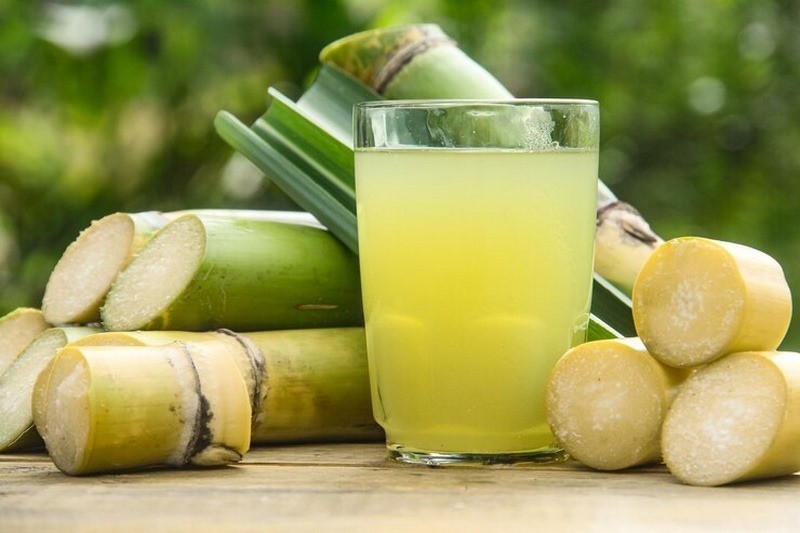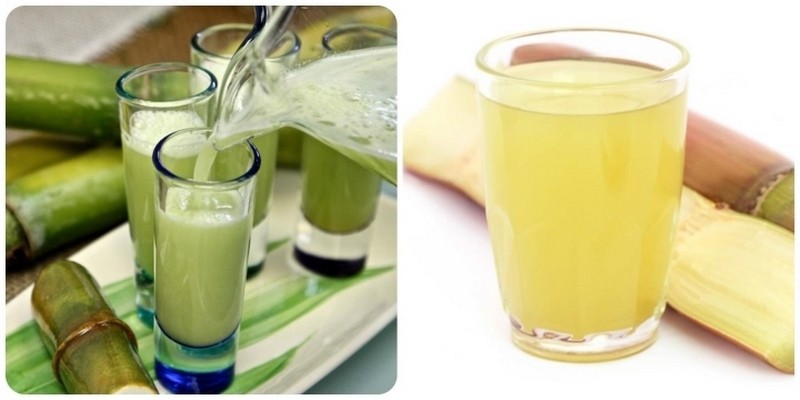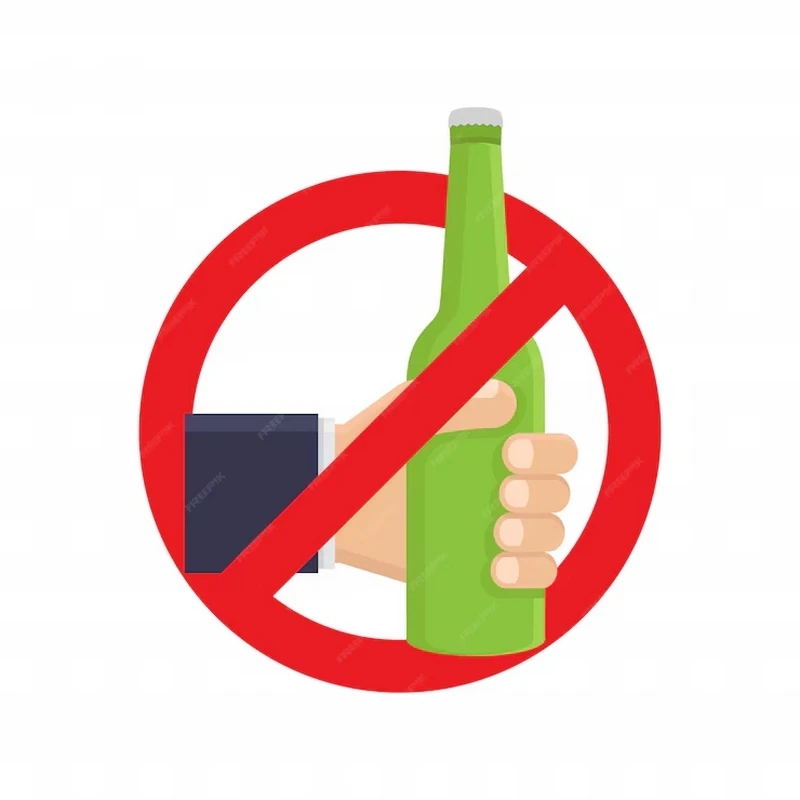Can I drink sugarcane juice after having a nose job? Is there any effect?
Beauty secrets
Dec 26, 2024
Dec 26, 2024
Nose surgery is a beauty journey that requires special care to achieve perfect results and ensure a quick healing of the incision. Among them, the question "Should you drink sugarcane juice after a nose job?" is a concern for many people. Let's explore the secrets behind a glass of sugarcane juice and the accurate answer to this question with Aura Beauty!
Nose surgery is a beauty journey that requires special care to achieve perfect results and ensure a quick healing of the incision. Among them, the question "Should you drink sugarcane juice after a nose job?" is a concern for many people. Let's explore the secrets behind a glass of sugarcane juice and the accurate answer to this question with Aura Beauty!
Nose surgery is a beauty journey that requires special care to achieve perfect results and ensure a quick healing of the incision. Among them, the question "Should you drink sugarcane juice after a nose job?" is a concern for many people. Let's explore the secrets behind a glass of sugarcane juice and the accurate answer to this question with Aura Beauty!
1. Can I drink sugar cane juice after a nose job?
To briefly answer the question "Can I drink sugar cane juice after a nose job?" is that it is not advisable to drink, especially in the early stages. Although sugar cane juice has many health benefits, its characteristics and components may negatively affect the recovery process after surgery.
The appropriate time to drink sugar cane juice is about a week after the surgery, when the wound has gradually stabilized and the tissue healing process is progressing smoothly. Before that, you should prioritize using safe beverages such as plain water.

2. Reasons why sugar cane juice may have an impact after nose surgery
2.1 Characteristics of sugar cane juice
Advantages: Sugar cane juice contains many important vitamins and minerals such as vitamin C, potassium, and magnesium, which help enhance immunity, reduce inflammation, and support the recovery process after surgery. For instance, vitamin C plays an important role in collagen production, an essential protein that helps regenerate new tissue cells, contributing to the wound healing process.

Disadvantages: However, sugar cane juice has a high sugar content, which can increase the risk of infection and prolong the healing time. Sugar creates a favorable environment for bacteria to grow, easily leading to infection at the surgical site. Additionally, due to its cooling nature, sugar cane juice can cause an upset stomach, indigestion, affect the blood clotting process, and increase the risk of bleeding or bruising after surgery.
2.2 Impact on wound healing process
The sugar in sugar cane juice stimulates the body to produce insulin, which may lead to the risk of infection and slow down the healing process. Insulin also affects the ability to synthesize collagen, an important factor in skin tissue regeneration.
2.3 Effects on the digestive system
Sugar cane juice can dilute gastric juice, causing digestive issues, which may indirectly affect the absorption of essential nutrients for the recovery process.

3. Duration of avoiding sugar cane juice after nose surgery
3.1 Duration of abstaining
To ensure safety and achieve optimal results after nose surgery, you should avoid drinking sugar cane juice for at least the first 2 to 3 weeks. This is a critical time when the body needs to focus all energy on healing the wound, reducing swelling, and preventing the risk of infection. Consuming sugar cane juice during this period may negatively impact the recovery process.
3.2 Reasons for abstaining
In the early stages after surgery, any factor that increases the risk of infection or hinders the recovery process needs to be limited. Sugar and the substances in sugar cane juice not only increase the risk of infection but may also cause swelling in the nasal area.
After surgery, especially in the early stages, any factors that may increase the risk of infection or impede tissue regeneration should be limited. Here are specific reasons why sugar cane juice should be avoided:
High sugar content: The sugar in sugar cane juice creates a favorable environment for bacteria to grow, increasing the risk of infection at the surgical site. This may lead to complications such as redness, pus formation, or slow wound healing.
Swelling properties: Sugar cane juice can raise blood sugar levels, causing water retention and making swelling in the nose more severe, especially when the tissues are still weak and sensitive after surgery.
Cooling nature of sugar cane juice: Due to its cooling properties, sugar cane juice can cause an upset stomach and affect blood circulation, hindering the natural blood clotting process. This not only prolongs healing time but may also cause more bruising in the nasal area.
Impact on the digestive system: During the recovery phase, the body needs to maintain stability in the digestive system to absorb nutrients effectively. Sugar cane juice can cause bloating, indigestion, adversely affecting overall health and indirectly hindering the recovery process.

4. Other beverages to avoid after nose surgery
In addition to sugar cane juice, you should also pay attention to other types of beverages to ensure the recovery process after a nose job goes smoothly.
4.1 Carbonated drinks
Carbonated drinks can cause bloating and increase blood pressure, leading to swelling and affecting the wound.
Coffee and tea
Caffeine found in coffee and tea is a stimulant that can have many adverse effects on the body after nose surgery. Specifically, caffeine increases the risk of dehydration due to its diuretic ability, making it difficult for the body to maintain necessary moisture to support tissue regeneration. Moreover, caffeine increases heart rate and blood pressure, which is not good for the recovery phase when the body needs stability. Additionally, caffeine consumption may cause insomnia, anxiety, and stress, leading to unstable moods, negatively impacting overall health and the speed of wound healing. Therefore, it is best to limit caffeine-containing beverages during this time.
4.3 Alcohol
Alcohol can thin the blood, increasing the risk of bleeding and prolonging the healing process. Furthermore, the use of alcohol can interact with pain relief or antibiotics, leading to unwanted side effects that negatively affect health and the recovery process after surgery.

5. Recommended beverages after nose surgery
5.1 Water
Water is the top choice to provide hydration for the body, helping to maintain moisture and promote the detoxification process. You should aim to drink at least 2 liters of water each day to ensure your body stays adequately hydrated.
Coconut water
With a rich content of electrolytes and minerals like potassium, sodium, and magnesium, coconut water helps replenish electrolytes, aiding the body’s recovery process after surgery.
Low-sugar milk
Rich in protein and calcium, milk supports tissue building and regeneration, playing an important role in recovery after surgery.
Low-sugar fruit juice
Juices like orange, grapefruit, or pineapple provide a large amount of vitamin C and antioxidants, helping to promote wound healing and boost the immune system, enabling the body to fight against the risk of infection.

6. Other considerations after nose surgery
After nose surgery, proper care and adherence to the doctor's instructions are crucial factors for achieving the desired results. Along with diet and abstaining practices, you also need to pay attention to daily habits to support the recovery process.
6.1 Wound care
Cleaning the nasal area: Use a specialized solution as instructed by the doctor to clean the nasal area, ensuring the removal of dirt and bacteria without causing irritation or damage to the surgical area. First, you need to change the dressing within 24 hours to keep the nasal area clean and avoid infection. Next, spend time completely resting in the first 1-2 days to stabilize your body. Remember to clean the surgical site and the nasal area with a clean gauze and distilled water, applying ointment twice a day (morning and evening).
Protecting the nasal area: Avoid exposing the nasal area to dirt, chemicals, or environmental irritants such as dust or sweat. If you need to go outside, wear a clean, breathable mask to protect the nasal area or apply sunscreen to bruised areas to avoid sun exposure. Especially, to reduce swelling, gently apply ice during the first 48 hours after surgery. Note, wrap the ice in a clean cloth before applying it to the skin to avoid the risk of frostbite and safely protect the nasal area. From the 4th day onwards, you can switch to warm compresses to reduce swelling and lightly wipe your face with a soft cloth until stitches are removed.
6.2 Avoid strong impacts to the nose
Limit rubbing or applying force: Do not scratch, rub, press hard, or touch the nasal area excessively to avoid causing damage or misalignment of the nose after surgery. Use antibiotics, pain relievers, anti-inflammatory medications, scar treatments... as directed by the doctor.
Correct sleeping position: When sleeping, use a high pillow to keep your head elevated above the heart to help reduce swelling and prevent pressure on the nose. Avoid lying on your side or face down on the pillow, as this may affect the nose shape and slow the recovery process.

6.3 Gentle exercise
Limit vigorous activity: Avoid heavy exercises such as lifting weights, running at high intensity, or contact sports for at least 1 month after surgery. These activities can put significant pressure on the nasal area and increase the risk of damage or bleeding.
Enhance blood circulation: Prioritize gentle exercises like walking, performing relaxation movements, or low-intensity yoga. These activities not only help your body recover faster but also reduce the risk of blood pooling or swelling in the nasal area.
After surgery, avoid sugar cane juice for at least the first 2-3 weeks to ensure the recovery process goes smoothly. Additionally, you should also follow the doctor's instructions and choose suitable foods and beverages to achieve the best aesthetic results.
1. Can I drink sugar cane juice after a nose job?
To briefly answer the question "Can I drink sugar cane juice after a nose job?" is that it is not advisable to drink, especially in the early stages. Although sugar cane juice has many health benefits, its characteristics and components may negatively affect the recovery process after surgery.
The appropriate time to drink sugar cane juice is about a week after the surgery, when the wound has gradually stabilized and the tissue healing process is progressing smoothly. Before that, you should prioritize using safe beverages such as plain water.

2. Reasons why sugar cane juice may have an impact after nose surgery
2.1 Characteristics of sugar cane juice
Advantages: Sugar cane juice contains many important vitamins and minerals such as vitamin C, potassium, and magnesium, which help enhance immunity, reduce inflammation, and support the recovery process after surgery. For instance, vitamin C plays an important role in collagen production, an essential protein that helps regenerate new tissue cells, contributing to the wound healing process.

Disadvantages: However, sugar cane juice has a high sugar content, which can increase the risk of infection and prolong the healing time. Sugar creates a favorable environment for bacteria to grow, easily leading to infection at the surgical site. Additionally, due to its cooling nature, sugar cane juice can cause an upset stomach, indigestion, affect the blood clotting process, and increase the risk of bleeding or bruising after surgery.
2.2 Impact on wound healing process
The sugar in sugar cane juice stimulates the body to produce insulin, which may lead to the risk of infection and slow down the healing process. Insulin also affects the ability to synthesize collagen, an important factor in skin tissue regeneration.
2.3 Effects on the digestive system
Sugar cane juice can dilute gastric juice, causing digestive issues, which may indirectly affect the absorption of essential nutrients for the recovery process.

3. Duration of avoiding sugar cane juice after nose surgery
3.1 Duration of abstaining
To ensure safety and achieve optimal results after nose surgery, you should avoid drinking sugar cane juice for at least the first 2 to 3 weeks. This is a critical time when the body needs to focus all energy on healing the wound, reducing swelling, and preventing the risk of infection. Consuming sugar cane juice during this period may negatively impact the recovery process.
3.2 Reasons for abstaining
In the early stages after surgery, any factor that increases the risk of infection or hinders the recovery process needs to be limited. Sugar and the substances in sugar cane juice not only increase the risk of infection but may also cause swelling in the nasal area.
After surgery, especially in the early stages, any factors that may increase the risk of infection or impede tissue regeneration should be limited. Here are specific reasons why sugar cane juice should be avoided:
High sugar content: The sugar in sugar cane juice creates a favorable environment for bacteria to grow, increasing the risk of infection at the surgical site. This may lead to complications such as redness, pus formation, or slow wound healing.
Swelling properties: Sugar cane juice can raise blood sugar levels, causing water retention and making swelling in the nose more severe, especially when the tissues are still weak and sensitive after surgery.
Cooling nature of sugar cane juice: Due to its cooling properties, sugar cane juice can cause an upset stomach and affect blood circulation, hindering the natural blood clotting process. This not only prolongs healing time but may also cause more bruising in the nasal area.
Impact on the digestive system: During the recovery phase, the body needs to maintain stability in the digestive system to absorb nutrients effectively. Sugar cane juice can cause bloating, indigestion, adversely affecting overall health and indirectly hindering the recovery process.

4. Other beverages to avoid after nose surgery
In addition to sugar cane juice, you should also pay attention to other types of beverages to ensure the recovery process after a nose job goes smoothly.
4.1 Carbonated drinks
Carbonated drinks can cause bloating and increase blood pressure, leading to swelling and affecting the wound.
Coffee and tea
Caffeine found in coffee and tea is a stimulant that can have many adverse effects on the body after nose surgery. Specifically, caffeine increases the risk of dehydration due to its diuretic ability, making it difficult for the body to maintain necessary moisture to support tissue regeneration. Moreover, caffeine increases heart rate and blood pressure, which is not good for the recovery phase when the body needs stability. Additionally, caffeine consumption may cause insomnia, anxiety, and stress, leading to unstable moods, negatively impacting overall health and the speed of wound healing. Therefore, it is best to limit caffeine-containing beverages during this time.
4.3 Alcohol
Alcohol can thin the blood, increasing the risk of bleeding and prolonging the healing process. Furthermore, the use of alcohol can interact with pain relief or antibiotics, leading to unwanted side effects that negatively affect health and the recovery process after surgery.

5. Recommended beverages after nose surgery
5.1 Water
Water is the top choice to provide hydration for the body, helping to maintain moisture and promote the detoxification process. You should aim to drink at least 2 liters of water each day to ensure your body stays adequately hydrated.
Coconut water
With a rich content of electrolytes and minerals like potassium, sodium, and magnesium, coconut water helps replenish electrolytes, aiding the body’s recovery process after surgery.
Low-sugar milk
Rich in protein and calcium, milk supports tissue building and regeneration, playing an important role in recovery after surgery.
Low-sugar fruit juice
Juices like orange, grapefruit, or pineapple provide a large amount of vitamin C and antioxidants, helping to promote wound healing and boost the immune system, enabling the body to fight against the risk of infection.

6. Other considerations after nose surgery
After nose surgery, proper care and adherence to the doctor's instructions are crucial factors for achieving the desired results. Along with diet and abstaining practices, you also need to pay attention to daily habits to support the recovery process.
6.1 Wound care
Cleaning the nasal area: Use a specialized solution as instructed by the doctor to clean the nasal area, ensuring the removal of dirt and bacteria without causing irritation or damage to the surgical area. First, you need to change the dressing within 24 hours to keep the nasal area clean and avoid infection. Next, spend time completely resting in the first 1-2 days to stabilize your body. Remember to clean the surgical site and the nasal area with a clean gauze and distilled water, applying ointment twice a day (morning and evening).
Protecting the nasal area: Avoid exposing the nasal area to dirt, chemicals, or environmental irritants such as dust or sweat. If you need to go outside, wear a clean, breathable mask to protect the nasal area or apply sunscreen to bruised areas to avoid sun exposure. Especially, to reduce swelling, gently apply ice during the first 48 hours after surgery. Note, wrap the ice in a clean cloth before applying it to the skin to avoid the risk of frostbite and safely protect the nasal area. From the 4th day onwards, you can switch to warm compresses to reduce swelling and lightly wipe your face with a soft cloth until stitches are removed.
6.2 Avoid strong impacts to the nose
Limit rubbing or applying force: Do not scratch, rub, press hard, or touch the nasal area excessively to avoid causing damage or misalignment of the nose after surgery. Use antibiotics, pain relievers, anti-inflammatory medications, scar treatments... as directed by the doctor.
Correct sleeping position: When sleeping, use a high pillow to keep your head elevated above the heart to help reduce swelling and prevent pressure on the nose. Avoid lying on your side or face down on the pillow, as this may affect the nose shape and slow the recovery process.

6.3 Gentle exercise
Limit vigorous activity: Avoid heavy exercises such as lifting weights, running at high intensity, or contact sports for at least 1 month after surgery. These activities can put significant pressure on the nasal area and increase the risk of damage or bleeding.
Enhance blood circulation: Prioritize gentle exercises like walking, performing relaxation movements, or low-intensity yoga. These activities not only help your body recover faster but also reduce the risk of blood pooling or swelling in the nasal area.
After surgery, avoid sugar cane juice for at least the first 2-3 weeks to ensure the recovery process goes smoothly. Additionally, you should also follow the doctor's instructions and choose suitable foods and beverages to achieve the best aesthetic results.
1. Can I drink sugar cane juice after a nose job?
To briefly answer the question "Can I drink sugar cane juice after a nose job?" is that it is not advisable to drink, especially in the early stages. Although sugar cane juice has many health benefits, its characteristics and components may negatively affect the recovery process after surgery.
The appropriate time to drink sugar cane juice is about a week after the surgery, when the wound has gradually stabilized and the tissue healing process is progressing smoothly. Before that, you should prioritize using safe beverages such as plain water.

2. Reasons why sugar cane juice may have an impact after nose surgery
2.1 Characteristics of sugar cane juice
Advantages: Sugar cane juice contains many important vitamins and minerals such as vitamin C, potassium, and magnesium, which help enhance immunity, reduce inflammation, and support the recovery process after surgery. For instance, vitamin C plays an important role in collagen production, an essential protein that helps regenerate new tissue cells, contributing to the wound healing process.

Disadvantages: However, sugar cane juice has a high sugar content, which can increase the risk of infection and prolong the healing time. Sugar creates a favorable environment for bacteria to grow, easily leading to infection at the surgical site. Additionally, due to its cooling nature, sugar cane juice can cause an upset stomach, indigestion, affect the blood clotting process, and increase the risk of bleeding or bruising after surgery.
2.2 Impact on wound healing process
The sugar in sugar cane juice stimulates the body to produce insulin, which may lead to the risk of infection and slow down the healing process. Insulin also affects the ability to synthesize collagen, an important factor in skin tissue regeneration.
2.3 Effects on the digestive system
Sugar cane juice can dilute gastric juice, causing digestive issues, which may indirectly affect the absorption of essential nutrients for the recovery process.

3. Duration of avoiding sugar cane juice after nose surgery
3.1 Duration of abstaining
To ensure safety and achieve optimal results after nose surgery, you should avoid drinking sugar cane juice for at least the first 2 to 3 weeks. This is a critical time when the body needs to focus all energy on healing the wound, reducing swelling, and preventing the risk of infection. Consuming sugar cane juice during this period may negatively impact the recovery process.
3.2 Reasons for abstaining
In the early stages after surgery, any factor that increases the risk of infection or hinders the recovery process needs to be limited. Sugar and the substances in sugar cane juice not only increase the risk of infection but may also cause swelling in the nasal area.
After surgery, especially in the early stages, any factors that may increase the risk of infection or impede tissue regeneration should be limited. Here are specific reasons why sugar cane juice should be avoided:
High sugar content: The sugar in sugar cane juice creates a favorable environment for bacteria to grow, increasing the risk of infection at the surgical site. This may lead to complications such as redness, pus formation, or slow wound healing.
Swelling properties: Sugar cane juice can raise blood sugar levels, causing water retention and making swelling in the nose more severe, especially when the tissues are still weak and sensitive after surgery.
Cooling nature of sugar cane juice: Due to its cooling properties, sugar cane juice can cause an upset stomach and affect blood circulation, hindering the natural blood clotting process. This not only prolongs healing time but may also cause more bruising in the nasal area.
Impact on the digestive system: During the recovery phase, the body needs to maintain stability in the digestive system to absorb nutrients effectively. Sugar cane juice can cause bloating, indigestion, adversely affecting overall health and indirectly hindering the recovery process.

4. Other beverages to avoid after nose surgery
In addition to sugar cane juice, you should also pay attention to other types of beverages to ensure the recovery process after a nose job goes smoothly.
4.1 Carbonated drinks
Carbonated drinks can cause bloating and increase blood pressure, leading to swelling and affecting the wound.
Coffee and tea
Caffeine found in coffee and tea is a stimulant that can have many adverse effects on the body after nose surgery. Specifically, caffeine increases the risk of dehydration due to its diuretic ability, making it difficult for the body to maintain necessary moisture to support tissue regeneration. Moreover, caffeine increases heart rate and blood pressure, which is not good for the recovery phase when the body needs stability. Additionally, caffeine consumption may cause insomnia, anxiety, and stress, leading to unstable moods, negatively impacting overall health and the speed of wound healing. Therefore, it is best to limit caffeine-containing beverages during this time.
4.3 Alcohol
Alcohol can thin the blood, increasing the risk of bleeding and prolonging the healing process. Furthermore, the use of alcohol can interact with pain relief or antibiotics, leading to unwanted side effects that negatively affect health and the recovery process after surgery.

5. Recommended beverages after nose surgery
5.1 Water
Water is the top choice to provide hydration for the body, helping to maintain moisture and promote the detoxification process. You should aim to drink at least 2 liters of water each day to ensure your body stays adequately hydrated.
Coconut water
With a rich content of electrolytes and minerals like potassium, sodium, and magnesium, coconut water helps replenish electrolytes, aiding the body’s recovery process after surgery.
Low-sugar milk
Rich in protein and calcium, milk supports tissue building and regeneration, playing an important role in recovery after surgery.
Low-sugar fruit juice
Juices like orange, grapefruit, or pineapple provide a large amount of vitamin C and antioxidants, helping to promote wound healing and boost the immune system, enabling the body to fight against the risk of infection.

6. Other considerations after nose surgery
After nose surgery, proper care and adherence to the doctor's instructions are crucial factors for achieving the desired results. Along with diet and abstaining practices, you also need to pay attention to daily habits to support the recovery process.
6.1 Wound care
Cleaning the nasal area: Use a specialized solution as instructed by the doctor to clean the nasal area, ensuring the removal of dirt and bacteria without causing irritation or damage to the surgical area. First, you need to change the dressing within 24 hours to keep the nasal area clean and avoid infection. Next, spend time completely resting in the first 1-2 days to stabilize your body. Remember to clean the surgical site and the nasal area with a clean gauze and distilled water, applying ointment twice a day (morning and evening).
Protecting the nasal area: Avoid exposing the nasal area to dirt, chemicals, or environmental irritants such as dust or sweat. If you need to go outside, wear a clean, breathable mask to protect the nasal area or apply sunscreen to bruised areas to avoid sun exposure. Especially, to reduce swelling, gently apply ice during the first 48 hours after surgery. Note, wrap the ice in a clean cloth before applying it to the skin to avoid the risk of frostbite and safely protect the nasal area. From the 4th day onwards, you can switch to warm compresses to reduce swelling and lightly wipe your face with a soft cloth until stitches are removed.
6.2 Avoid strong impacts to the nose
Limit rubbing or applying force: Do not scratch, rub, press hard, or touch the nasal area excessively to avoid causing damage or misalignment of the nose after surgery. Use antibiotics, pain relievers, anti-inflammatory medications, scar treatments... as directed by the doctor.
Correct sleeping position: When sleeping, use a high pillow to keep your head elevated above the heart to help reduce swelling and prevent pressure on the nose. Avoid lying on your side or face down on the pillow, as this may affect the nose shape and slow the recovery process.

6.3 Gentle exercise
Limit vigorous activity: Avoid heavy exercises such as lifting weights, running at high intensity, or contact sports for at least 1 month after surgery. These activities can put significant pressure on the nasal area and increase the risk of damage or bleeding.
Enhance blood circulation: Prioritize gentle exercises like walking, performing relaxation movements, or low-intensity yoga. These activities not only help your body recover faster but also reduce the risk of blood pooling or swelling in the nasal area.
After surgery, avoid sugar cane juice for at least the first 2-3 weeks to ensure the recovery process goes smoothly. Additionally, you should also follow the doctor's instructions and choose suitable foods and beverages to achieve the best aesthetic results.
REGISTER NOW
REGISTER NOW
REGISTER NOW



Author
Dr. Huynh Cong Thanh
Dr. Huỳnh Công Thành has over 12 years of experience in the field of aesthetics and skin treatment for more than 100,000 clients.
See more
See more
You may be interested

Beauty secrets
Nose lift services at Aura: Prices and popular methods

Beauty secrets
Nose lift services at Aura: Prices and popular methods

Beauty secrets
Nose lift services at Aura: Prices and popular methods

Beauty secrets
Can I eat eggs after nose surgery? How long until I can eat eggs?

Beauty secrets
Can I eat eggs after nose surgery? How long until I can eat eggs?

Beauty secrets
Can I eat eggs after nose surgery? How long until I can eat eggs?

Beauty secrets
Can I eat duck after nose surgery? How long until I can eat?

Beauty secrets
Can I eat duck after nose surgery? How long until I can eat?

Beauty secrets
Can I eat duck after nose surgery? How long until I can eat?

Beauty secrets
Is it possible to drink soybean milk after nose lifting? How long until I can drink it?

Beauty secrets
Is it possible to drink soybean milk after nose lifting? How long until I can drink it?

Beauty secrets
Is it possible to drink soybean milk after nose lifting? How long until I can drink it?

Beauty secrets
Aura Aesthetic answers: Can you drink coconut water after getting a nose job?

Beauty secrets
Aura Aesthetic answers: Can you drink coconut water after getting a nose job?

Beauty secrets
Aura Aesthetic answers: Can you drink coconut water after getting a nose job?

Beauty secrets
Can You Eat Durian After Nose Surgery? Reasons and Considerations After the Surgery

Beauty secrets
Can You Eat Durian After Nose Surgery? Reasons and Considerations After the Surgery

Beauty secrets
Can You Eat Durian After Nose Surgery? Reasons and Considerations After the Surgery


